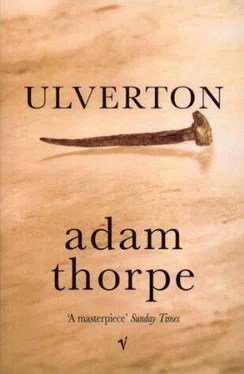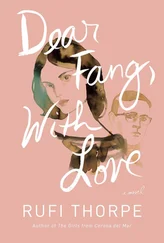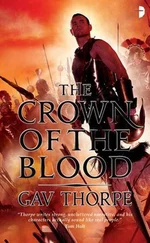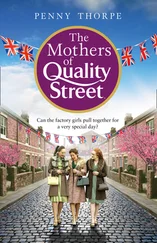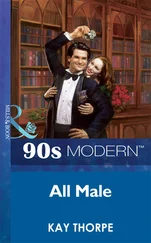The first part of his speech was a comfortable rug woven from the fleece of that familiar flock, consisting of Native Spot, Bosom of the Hills, Lord Nelson, Rich and Happy England, and Admiral Rodney — the last mainly on account of some blood shared with the weaver. The second part of the speech began to snap and flap a little, holding aloft Valour, Enterprise, Sacrifice, Boadicea, Heroic Zeal, and sundry other gilded sentiments, taking their shine from their proximity to Barbarous Foe, Tyrannical Ambition, and The Hun. The Destruction of Frederikshald was slowly unrolled as anecdote, at which point some of the listeners evidently grew weary of defences being staunch and resistances being vigorous — the fate of a Norwegian town in 1716 holding no immediate interest for them — and began to talk amongst themselves. The Squire saw this, and two small spots of red rose in his cheeks. Frederikshald was abandoned mid-cannon, there was a splutter and an adjustment of the pince-nez, but the foolhardy few — particularly the group of fellows in smocks, from whom a guffaw was to be heard now and again — continued to brandish their lucifers above the exceedingly dry tinder of the Squire’s wrath.
The Vicar coughed, the Major scowled, I lowered my head, a louder guffaw sounded, there was a brief silence. Having head thus lowered, and eyes fixed firmly on the ground, with all the comfort of a chap sheltering beneath an ammunition lorry, I was mightily surprised to hear, instead of an explosion, a long ‘Ooooo’ from all about me, rather as if a flock of giant doves had winged happily into the square, and nested amongst us. Looking up, I saw a most remarkable sight: the Squire was holding aloft a large curved sword, polished to a mirror, which flashed the evening sun across our eyes and caused me to blink hurriedly. In the other hand he was holding its tasselled crimson scabbard, from which it had evidently just been drawn. Where this magnificent weapon (identified by the frumpy lady on my right as a cavalryman’s sabre) had emerged from I cannot say, but it transformed the Squire thoroughly, as if its magical properties of Valour, Enterprise, Sacrifice and Heroic Zeal had trickled down into his arm, and then his chest, and so on, and filled his whole otherwise unremarkable frame.
He then opened his mouth and delivered a single sentence, which had neither the Valours nor the Zeals about it, but was memorable for its simple earnestness. In its own small way it could have jostled in some Heavenly Mausoleum for Oratory with Queen Elizabeth’s speech at Tilbury (‘I know I have the body but of a weak and feeble woman …’ et cetera), which were it not for dusty schoolrooms I would now probably find as invigorating as the oaken-hearted soldiery were reported to have done. The secret of the Squire’s earnestness, however, was in its straightforward childishness — perhaps boyishness would be a kinder term. He transformed the essential boyishness of all these abstract sentiments into something touchable and felt. He caught the nursery mood of the country in this microcosm of place, and moved our hearts; for we saw the little boy in him and so felt the little boy in us; each small hand enclosed in a firm grasp that was History bidding us from above to come.
‘My grandfather,’ cried he, ‘bore this sword at Waterloo!’
Another ‘Oooo’ extended the final syllable, and the Major and the Vicar smiled at each other. The sword’s magical properties increased. It flashed back at us the golden dazzling moments of British victories. Its needle-sharp point proclaimed our freedoms. Its sleek curve was as perpetual as the spumed steely coastline of our island. The Squire swung it through the evening air, and its high hiss was the civilised thrum of the great Empire, quietly valiant, subduing only the primitive and bloody places of the world, erecting Industry in its stead.
Yes, dear reader, all these moth-eaten images spun through my mind, and allowed me for a moment (the sentiment was short-lived) to comprehend the effect, to be buoyed up, as it were, on the swell, and not sink in spluttering condemnation.
The Union Jack draped over the front of the podium swelled slightly in the evening breeze, that carried on its bosom the scent of golden fields awaiting the reapers’ blades; and the Squire lowered the sword and touched the front edge of the podium, so that all eyes followed its line to the heart of their flag.
‘Once again we are called. Once again the foe knocks at our gates. Once again our young men, our hearts of oak, have the opportunity to join this great march, to wield this same sword, to follow this same flag. The flag that says we are free forever. No Napoleon, no Hun, no barbarous tyrant will ever tear it from us.’
The effect, as I have said, was short-lived on me, once the usual threadbare patches had returned. But for the humble folk gathered in the square, whose lives were generally field-hedged, or scullery-encompassed, whose intellects then (even more than now) resembled their living rooms — shut up and musty, turned into parlours for the odd Sunday or the once-a-year guest, the odd jolt in an unchanging routine; and whose concerns therefore barely rose above the washing-tub or the driving coulter or the pennies in the sugar-tin — for these people the Squire’s speech somehow unbarred the bolts and blew open the doors: some featureless excitement was emerging; something to harass boredom out of its hole, to arrest the mangle in its squealing, eternal revolutions.
There was one exception to this depressing phenomenon: the under-gardener of the Manor remained transfixed not by the venerable sabre that had slashed flesh at Waterloo, but by the house-martin. Whether his interest was real or otherwise, I did not, and still do not, know; the several conversations on matters botanical and ornithological I had had with him made me pretty certain of his deep knowledge. But I fancy the house-martin was a kind of point of meditation, whose real purpose was to deflect that hypnotic flash. I felt ashamed of my own brief thrill, and there arose in me a corresponding defiance — even a sense of disgust at the emotions unleashed across this still summer’s evening in rural England. But the Squire was now at the climax of his oratorical symphony: this was the point of the meeting, and an injection of the lowest element of that ‘radical Fire’ which binds love and wrath, and is called Envy.
‘The Major has asked me to tell you that any man here who is willing to defend our country, to fight for freedom, in the name of God, may step forward and declare himself. Yesterday, the village of Bursop gave to the cause thirty of its young vigorous men. Thirty! And, I hear someone call out — harvest is only a week away! But the women and children of Bursop are doughty enough, apparently, to gather the corn, and free their menfolk for an even nobler harvest. Shall Ulverton be bested by Bursop? Shall Bursop be the name that rings down the annals of history, as the village that stepped forward when the hour called, and laid itself upon the, ah …’
There was a brief pause, as the Squire’s grasp of metaphorical nicety gave out, and the choices had evidently narrowed to a morbid few, reeking of pagan rather than Christian virtues, and being altogether too passive (I assume ‘pyre’ and ‘altar’ were prime candidates) for the occasion. In retrospect, how fitting would that metaphor have been! This hitch in the proceedings was saved by a shout from one of the smocks, to the effect (I paraphrase) that Bursop folk were ineffectual layabouts, and we could do better — whereupon the whole crowd roared to a man, or shrieked to a woman. Such behaviour would not have seemed so hateful had they been picking teams for their annual cricket match, but memories of my nephew’s facial injuries in the South African war loomed before me, and refused to evaporate. I began to feel nauseous, and spun a mental thread between myself and Percy Cullurne, who remained unsettlingly oblivious to the proceedings.
Читать дальше
